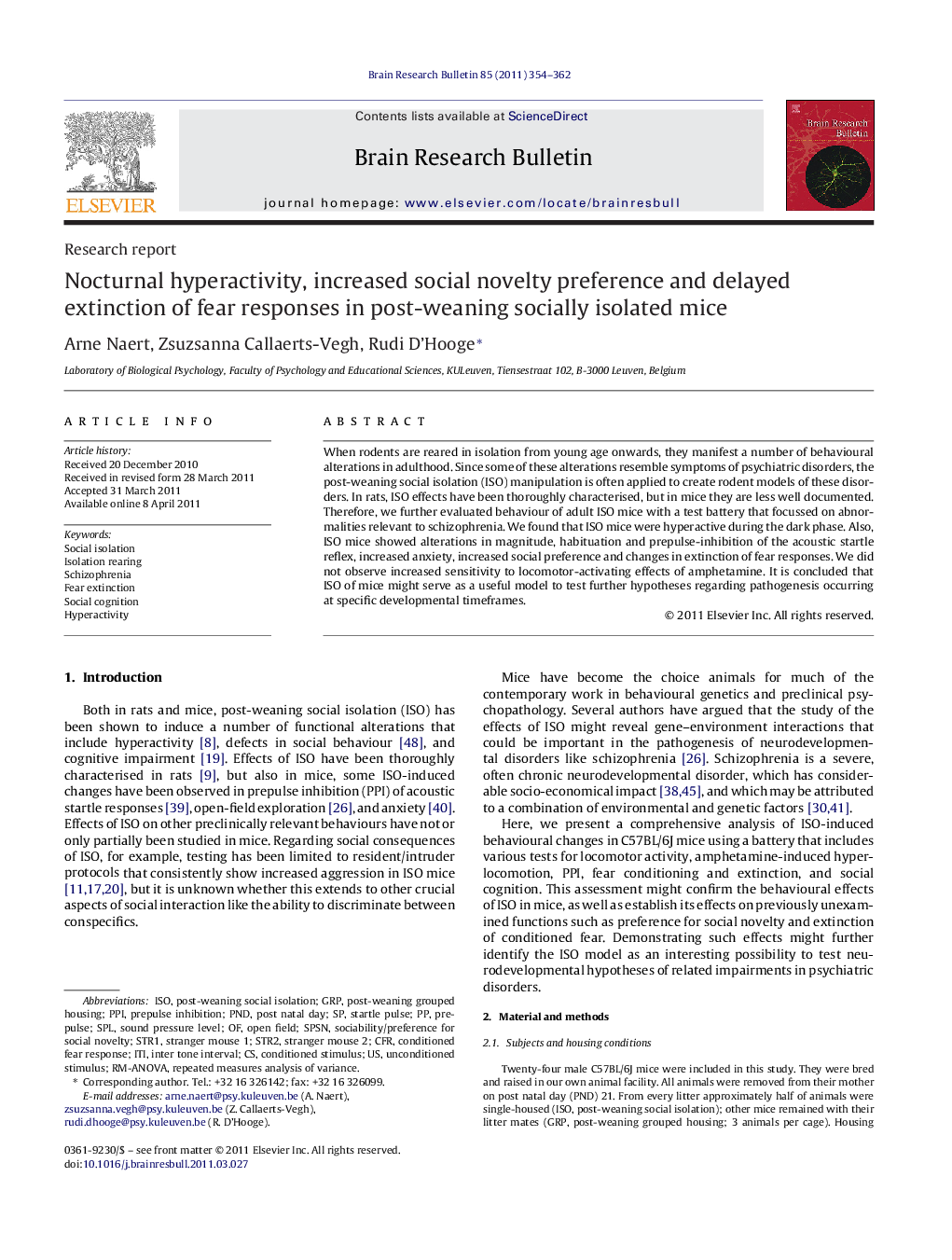| Article ID | Journal | Published Year | Pages | File Type |
|---|---|---|---|---|
| 6262107 | Brain Research Bulletin | 2011 | 9 Pages |
When rodents are reared in isolation from young age onwards, they manifest a number of behavioural alterations in adulthood. Since some of these alterations resemble symptoms of psychiatric disorders, the post-weaning social isolation (ISO) manipulation is often applied to create rodent models of these disorders. In rats, ISO effects have been thoroughly characterised, but in mice they are less well documented. Therefore, we further evaluated behaviour of adult ISO mice with a test battery that focussed on abnormalities relevant to schizophrenia. We found that ISO mice were hyperactive during the dark phase. Also, ISO mice showed alterations in magnitude, habituation and prepulse-inhibition of the acoustic startle reflex, increased anxiety, increased social preference and changes in extinction of fear responses. We did not observe increased sensitivity to locomotor-activating effects of amphetamine. It is concluded that ISO of mice might serve as a useful model to test further hypotheses regarding pathogenesis occurring at specific developmental timeframes.
⺠We evaluated behaviour of post-weaning socially isolated mice. ⺠Hyperactivity, altered social behaviour and delayed extinction of fear were noted. ⺠Post-weaning social isolation can be used to study neurodevelopmental disorders.
